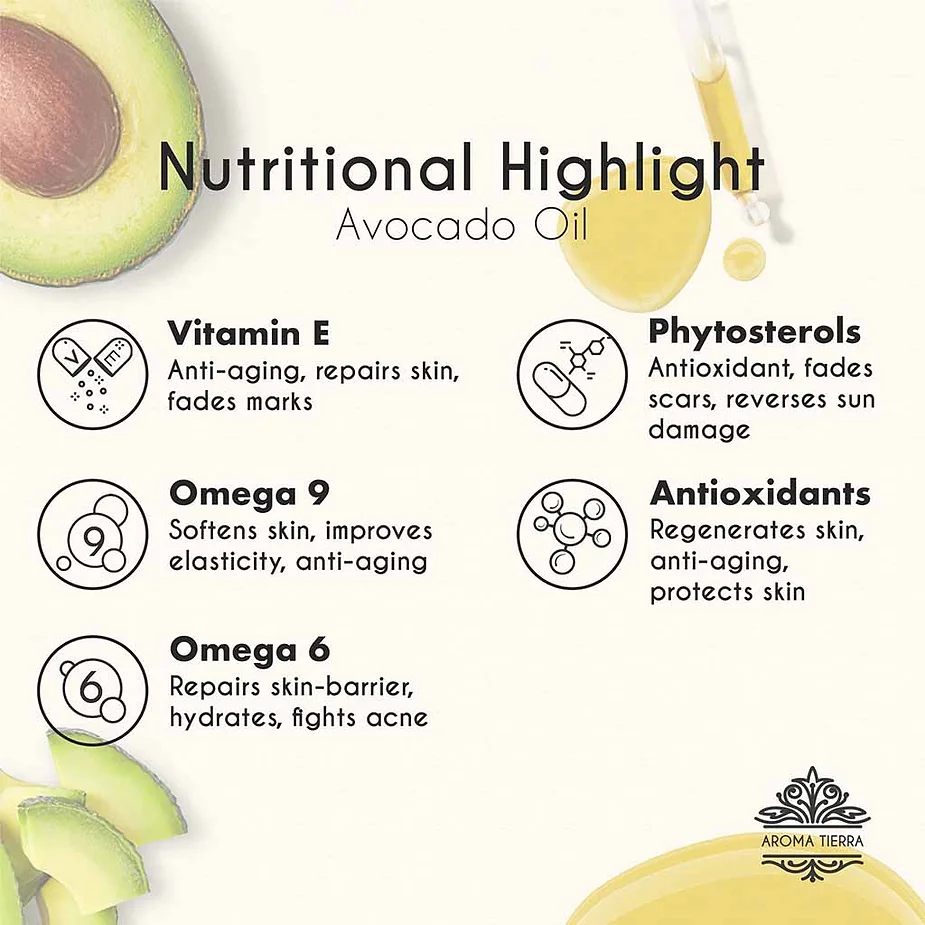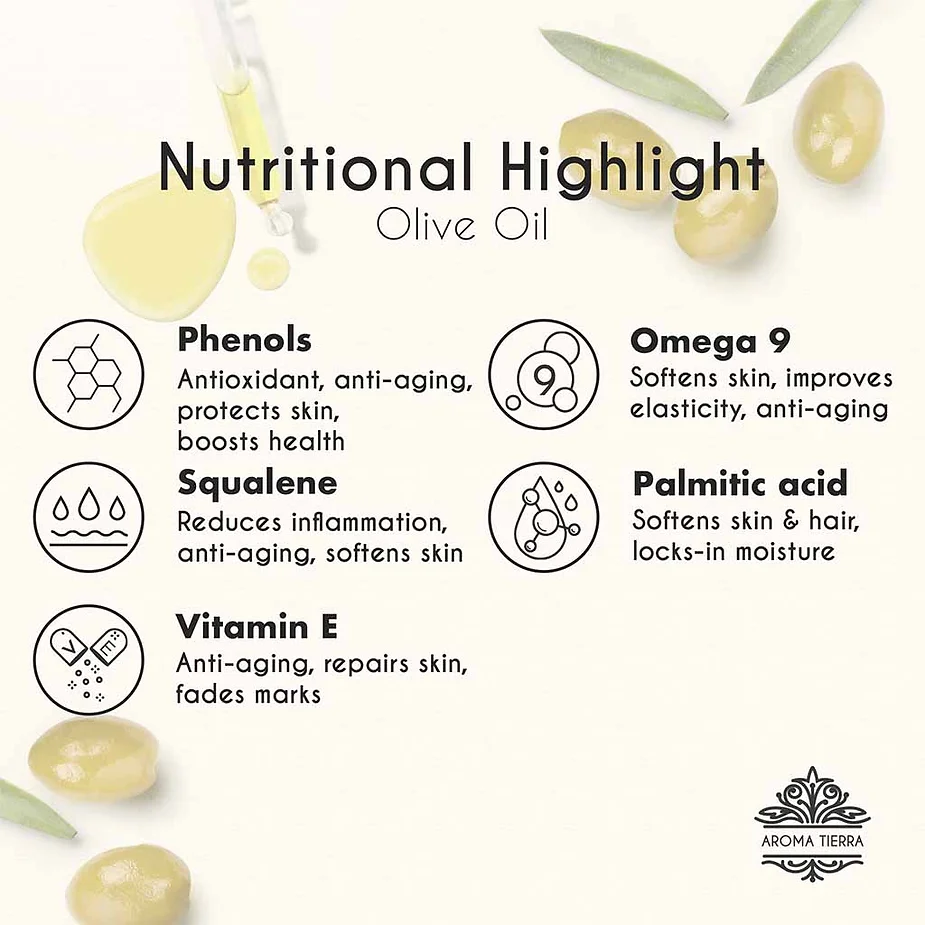The pantry oil selection can feel like a battlefield for home cooks everywhere. Two contenders consistently vie for the top spot: avocado oil vs. olive oil. Both boast impressive health halos and culinary versatility, but which one reigns supreme?
Deciding between Avocado Oil vs Olive Oil hinges on several key factors: health benefits, smoke point (ideal cooking temperature), taste profile, and how these elements influence your culinary creations. A definitive “winner” would depend on your specific needs.
Avocado Oil Benefits

Heart Health
Avocado oil is healthy and takes center stage for its impressive content of monounsaturated fats, specifically oleic acid. Research suggests oleic acid plays a vital role in promoting heart health by potentially lowering LDL (“bad”) cholesterol and increasing HDL (“good”) cholesterol levels.
Blood Sugar & Weight Management
Maintaining blood sugar and belly fat are the most demanding avocado oil benefits. To support this claim, studies indicate oleic acid found in avocados may contribute to improved blood sugar control and weight management efforts.
Vision Care
Those who are curious to know that is avocado oil healthy choice for vision care must be satisfied now. Both avocado and olive oil contain lutein, a carotenoid known for its benefits to eye health and vision care. Studies have shown that lutein found in avocado oil benefits and helps prevent or reduce the severity of several eye conditions, such as macular degeneration, nearsightedness, cataracts, and diabetic retinopathy. This plant compound is crucial in maintaining good vision and overall eye wellness.
Antioxidant & Anti-inflammatory Properties
This “good fat” doesn’t stop there. Avocado oil boasts a modest amount of antioxidants and anti-inflammatory properties, potentially contributing to overall health and well-being.
Skin Health
Avocado and olive oil are beneficial for skin health due to their high vitamin E and fatty acid content. These fats are essential for cell structure and help strengthen the skin’s natural oil barrier.
The anti-inflammatory properties of vitamin E and the unsaturated fats in these oils contribute to vibrant, glowing skin. Additionally, vitamin E acts as an antioxidant, providing photoprotective effects against UV radiation from the sun.
Olive Oil Benefits

Anti-Inflammatory Properties
The health benefits of olives are well-known. Similarly, olive oil, particularly extra virgin olive oil (EVOO), is a treasure trove of antioxidants known as polyphenols. These powerful compounds offer a range of potential benefits, including reducing inflammation. The antioxidants in olive oil, particularly oleocanthal, have powerful anti-inflammatory effects similar to those of ibuprofen. Chronic inflammation is a key driver of many diseases, including heart disease, cancer, and Alzheimer’s, and the anti-inflammatory effects of olive oil can help reduce this risk.
Brain Health
Olive oil is also associated with improved brain function and a lower risk of cognitive decline. Studies have found that diets rich in extra virgin olive oil (EVOO), like the Mediterranean diet, are linked to a reduced risk of Alzheimer’s disease, protecting against cognitive decline, and other neurodegenerative conditions.
Olive oil benefits for protecting brain cells from oxidative stress and anxiety include reducing the risk of cognitive decline and promoting mental clarity, making it a powerful ally for maintaining long-term brain health.
Heart Health
Exploring Olive Oil nutrition facts reveals its high content of monounsaturated fats, antioxidants, and vital nutrients that support heart health and overall wellness. Particularly oleic acid, which is known to lower levels of bad cholesterol (LDL) while maintaining good cholesterol (HDL).
Numerous studies, including the landmark PREDIMED study, have shown that a diet high in olive oil can significantly reduce the risk of heart disease and stroke.
Cancer Prevention
Research suggests that olive oil may help reduce the risk of certain types of cancer, particularly breast cancer. Its high levels of antioxidants, such as polyphenols, can protect cells from oxidative damage, which is a major factor in the development of cancer.
Bone Health
Olive oil has been shown to enhance bone health by promoting better calcium absorption and supporting bone mineralization. These effects can lead to stronger, denser bones and a reduced risk of developing osteoporosis, a condition marked by fragile bones and an increased likelihood of fractures.
Hair Benefits
Scientifically proven that olive oil is good for your hair. It contains healthy fats and antioxidants that can nourish and moisturize your scalp and hair. Here are some of the benefits of using olive oil on your hair:
- Moisturizes dry hair: Olive oil can help to hydrate and soften dry, brittle hair.
- Reduces frizz: It can help to tame frizz and reduce static.
- Promotes hair growth: Some studies suggest that olive oil may help to promote hair growth.
- Adds shine: Olive oil can give your hair a healthy shine.
Side Notes
- It’s important to note that olive oil comes in various grades, each with slightly different nutritional profiles. Extra virgin olive oil, extracted through mechanical pressing, retains the highest concentration of antioxidants and boasts a unique flavor profile we’ll explore later.
- Refined olive oil, on the other hand, undergoes further processing, resulting in a neutral flavor and higher smoke point (more suitable for high-heat cooking).
Understanding these distinctions is key to selecting the right olive oil for both your health and culinary needs.
Nutritional Facts Comparison
Making informed choices about the fats we consume is crucial for overall health. Let’s delve deeper and compare the nutritional profiles of Avocado oil vs. Olive oil per serving size (typically 1 tablespoon or 14 grams).
Here’s a table to shed light on the key differences:
| Nutrient | Avocado Oil | Extra Virgin Olive Oil (EVOO) |
|---|---|---|
| Calories | 120 | 119 |
| Total Fat | 13.5 g | 13.8 g |
| Saturated Fat | 1.6 g | 1.9 g |
| Monounsaturated Fat | 10.5 g | 8.1 g |
| Polyunsaturated Fat | 1.9 g | 0.7 g |
| Vitamin E | 1.35 mg (10%) | 1.9 mg |
| Vitamin K | No | 7.2 mcg (8%) |
Understanding these values can help you make informed choices based on your dietary needs.
Avocado Oil vs Olive Oil: Choosing the Right Oil for Different Cooking Methods
When the kitchen heats up, so does the importance of smoke point. Smoke point refers to the temperature at which an oil starts to break down and emit smoke. Using oil past its smoke point not only affects flavor but also creates harmful toxins.
Here’s where avocado oil and olive oil take on distinct roles based on their smoke point differences:
Avocado Oil For Cooking: Facts
Avocado oil shines with its impressive high smoke point, typically exceeding 480°F (249°C). This makes it a champion for high-heat cooking methods like:
- Searing: Sear meats like steaks and fish to achieve a perfectly caramelized crust without burning.
- Stir-frying: Avocado oil’s neutral flavor profile won’t overpower the delicate flavors in Asian-inspired stir-fries.
- Grilling: Enjoy perfectly grilled vegetables and meats without worrying about the oil breaking down at high temperatures.
- When considering avocado oil calories, it’s important to note that one tablespoon contains approximately 120 calories, making it a nutrient-dense option for cooking and salads
Olive Oil For Cooking: The Low-Heat Maestro
While not ideal for high-heat cooking, olive oil excels in low-heat applications where its flavor can truly sing. It’s important to note that the olive oil smoke point can vary depending on its quality and processing method. Extra virgin olive oil, which is considered the highest quality, generally has a lower smoke point than refined olive oil.
- Sautéing: Gently sauté vegetables or aromatics for a base of rich flavor without burning the oil.
- Salad Dressings: Extra virgin olive oil’s distinct fruity, grassy, or peppery notes (depending on the variety) can elevate a simple salad dressing into a flavor sensation.
- Drizzling: Drizzle a touch of high-quality EVOO over cooked vegetables, pasta, or grilled meats to add a touch of richness and enhance the overall taste.
By understanding the smoke point differences between avocado oil and olive oil, you can confidently choose the right oil to achieve delicious results without compromising on health or flavor.
Flavor Profiles and Culinary Applications
The flavor profile of Avocado Oil vs. Olive Oil goes beyond just “good” or “bad.” It’s the unique symphony of taste and aroma that an ingredient contributes to a dish. Understanding the taste profiles of avocado oil and olive oil empowers you to make culinary choices that elevate your cooking.
Avocado Oil: The Versatile Neutral Player
Avocado oil takes the stage as a culinary chameleon. Its neutral and subtle flavor profile makes it a perfect choice for a wide range of cuisines without overpowering the delicate tastes of other ingredients.
Here’s where avocado oil truly shines:
- Asian Cuisine: The neutral flavor complements the bold notes in Asian stir-fries, curries, and noodle dishes.
- Mediterranean Cuisine: Avocado oil allows the vibrant flavors of herbs, spices, and fresh ingredients to take center stage in Mediterranean dishes.
- Baking & Desserts: Due to its neutral taste and high smoke point, avocado oil can be a healthy substitute for butter or other fats in baking applications.
What Does Avocado Oil Taste Like?
Avocado oil has a mild, buttery flavor with a slightly nutty taste. It is less intense than olive oil, making it versatile for both cooking and dressing dishes without overpowering other ingredients.
Olive Oil: The Flavorful Champion
Olive oil, particularly extra virgin olive oil (EVOO), boasts a distinct and complex flavor profile. Depending on the olive variety and region, EVOO can exhibit fruity, grassy, peppery, or even slightly bitter notes.
This unique flavor profile makes EVOO a perfect match for specific cuisines:
- Italian Cuisine: EVOO’s robust flavor complements the simplicity and fresh ingredients of Italian cooking, like pasta dishes and bruschetta.
- Greek Cuisine: Drizzle EVOO over grilled vegetables, seafood, or salads to enhance the authentic flavors of Greek cuisine.
- Dipping: High-quality EVOO paired with crusty bread is a simple yet satisfying appetizer, allowing the olive oil’s flavor to shine.
The key takeaway? There is only a slight difference between avocado oil and olive oil calories. So don’t be afraid to experiment! Embrace the versatility of avocado oil and the distinctive character of olive oil to create a flavor symphony in your kitchen.
Here are some key takeaways:
- Both avocado oil and olive oil are excellent sources of healthy monounsaturated fats, which are linked to numerous health benefits.
- Avocado oil boasts slightly higher monounsaturated fat content per serving compared to EVOO.
- EVOO offers a higher concentration of vitamin E, an antioxidant with various health benefits.
- EVOO is the only source of vitamin K in this comparison, which plays a crucial role in blood clotting and bone health.
Important
- Remember, these are just general comparisons. The specific nutrient profile of an oil can vary depending on factors like the olive variety for EVOO and the processing method for avocado oil.
- It’s always a good idea to consult a registered dietitian or healthcare professional for personalized dietary advice.
Conclusion: The Verdict About Avocado Oil Or Olive Oil
So, who wins the ultimate showdown: avocado oil or olive oil? The answer, like many things in the culinary world, is… it depends!
Quick Cheat Sheet
- For High-Heat Cooking: Avocado Oil reigns supreme with its impressive smoke point, making it ideal for searing, stir-frying, and grilling.
- For Low-Heat Cooking and Flavor Enhancement: Extra Virgin Olive Oil (EVOO) takes center stage. Embrace its distinct flavor profile to elevate salad dressings, and pasta dishes, and drizzle over cooked vegetables or meats.
- For Versatility and Neutral Flavor: Avocado Oil is your champion. Its neutral taste won’t overpower other ingredients, making it a great choice for various cuisines and baking applications.
- For Rich Flavor and Specific Cuisines: EVOO takes the gold. Enhance Italian, Greek, and Mediterranean dishes with their unique fruity, grassy, or peppery notes.
- For Heart Health: Both avocado oil and EVOO are excellent sources of monounsaturated fats, promoting good cholesterol and heart health.
Ultimately, the best approach might be to have both avocado oil or olive oil on hand. This allows you to leverage the strengths of each oil depending on your cooking method and desired flavor profile.
Additional Health Tips
- Store both avocado oil and olive oil in a cool, dark place to preserve freshness. Heat and light can degrade the quality of the oil.
- Don’t reuse cooking oil. Once heated, oil breaks down and loses its beneficial properties.
- Choose high-quality olive oil. Invest in extra virgin olive oil (EVOO) for its superior flavor and health benefits.
- Experiment and have fun! Explore the unique characteristics of each oil to create delicious and healthy dishes.
Additional Considerations
| Factors | Avocado Oil | Olive Oil |
|---|---|---|
| Environmental Impact | Avocado production can require significant water resources, raising concerns about sustainability. | Sustainable olive farming practices are crucial to minimize environmental impact. Look for certifications like “Fair Trade” or “USDA Organic” when choosing olive oil. |
| Cost | Generally more expensive than olive oil | Prices vary depending on the grade (EVOO is typically pricier). |
| Availability | Gaining wider availability but might not be readily available in all regions. | Widely available, but high-quality EVOO might require specialty stores. |
| Allergens | Generally considered safe for those with nut allergies. However, if you have a severe avocado allergy, consult a healthcare professional before using avocado oil. | No known allergens. |
Frequently Asked Questions (FAQs)
Can I substitute avocado oil for olive oil in all recipes?
In most cases, yes. However, if the recipe relies on the distinct flavor of EVOO, the taste might be slightly altered.
Does avocado oil taste like avocado?
No. Avocado oil has a very neutral taste.
Which oil is better for weight loss?
Both avocado oil and olive oil can be part of a healthy weight loss plan when consumed in moderation. Focus on portion control and overall dietary balance.
Is it okay to cook with extra virgin olive oil?
Yes, but due to its lower smoke point, it’s best suited for low-heat cooking methods.
Can I Use Olive Oil Instead Of Vegetable Oil?
Yes, you can substitute olive oil for vegetable oil in most recipes. Olive oil has a distinct flavor, which might slightly alter the taste of your dish, especially if you use extra virgin olive oil. It’s also important to note that olive oil has a lower smoke point than some vegetable oils, making it less suitable for high-heat cooking methods like frying. However, for baking, sautéing, and salad dressings, olive oil is a great alternative.












